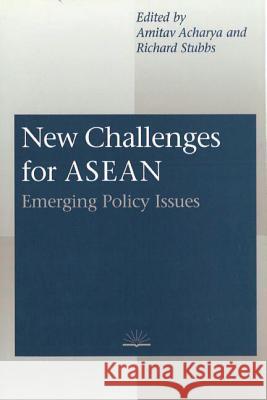New Challenges for ASEAN: Emerging Policy Issues » książka
New Challenges for ASEAN: Emerging Policy Issues
ISBN-13: 9780774805216 / Angielski / Twarda / 1995 / 224 str.
The countries of Brunei, Indonesia, Malaysia, the Philippines, Thailand, and Singapore, all members of ASEAN, (The Association of South East Asian Nations), are all experiencing unprecedented economic growth and a rising political profile as they take their place in the international community. For the rest of the world to be able to understand the region and participate as knowledgeable and effective partners in its development, it is crucial that they develop an understanding of the major policy issues affecting the area. "New Challenges for ASEAN" brings together a collection of articles which deal with specific, contemporary issues and provide suggestions to policy makers and others where the challenges are and what avenues should be explored to promote increased cooperation with other nations. The contributors, all specialists in their fields, examine how the changing domestic, regional, and global environment has redefined ASEAN's policy focus and agenda. They focus on such "new" items as the environment and human rights, as well as the need to broaden the definition of what constitutes the region as the neighbouring states of Vietnam, Cambodia, and Laos show equal potential for change and growth. ASEAN has long been regarded as an inward-looking sub-regional organization, preoccupied with the domestic stability of its members and the management of intra-Southeast Asian problems. In order for it to cope with the rapid changes in the wider Asia-Pacific and international environment, it must, as is emphasized by all the contributors, adopt an out-ward looking posture and complex agenda, which will simultaneously underscore its growing interdependence with the outside world and its vulnerability to internal shifts.











